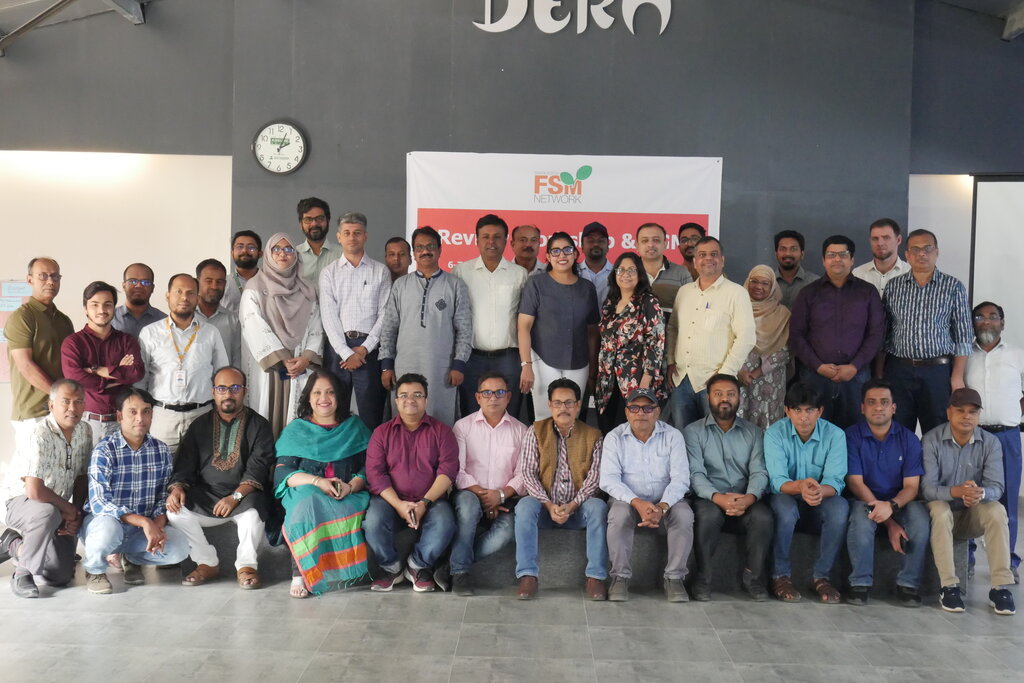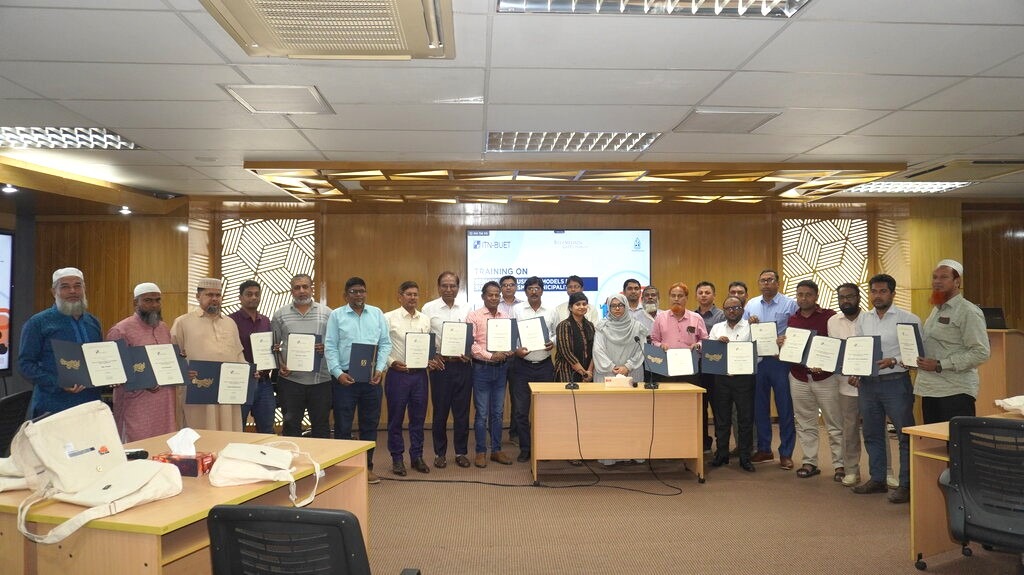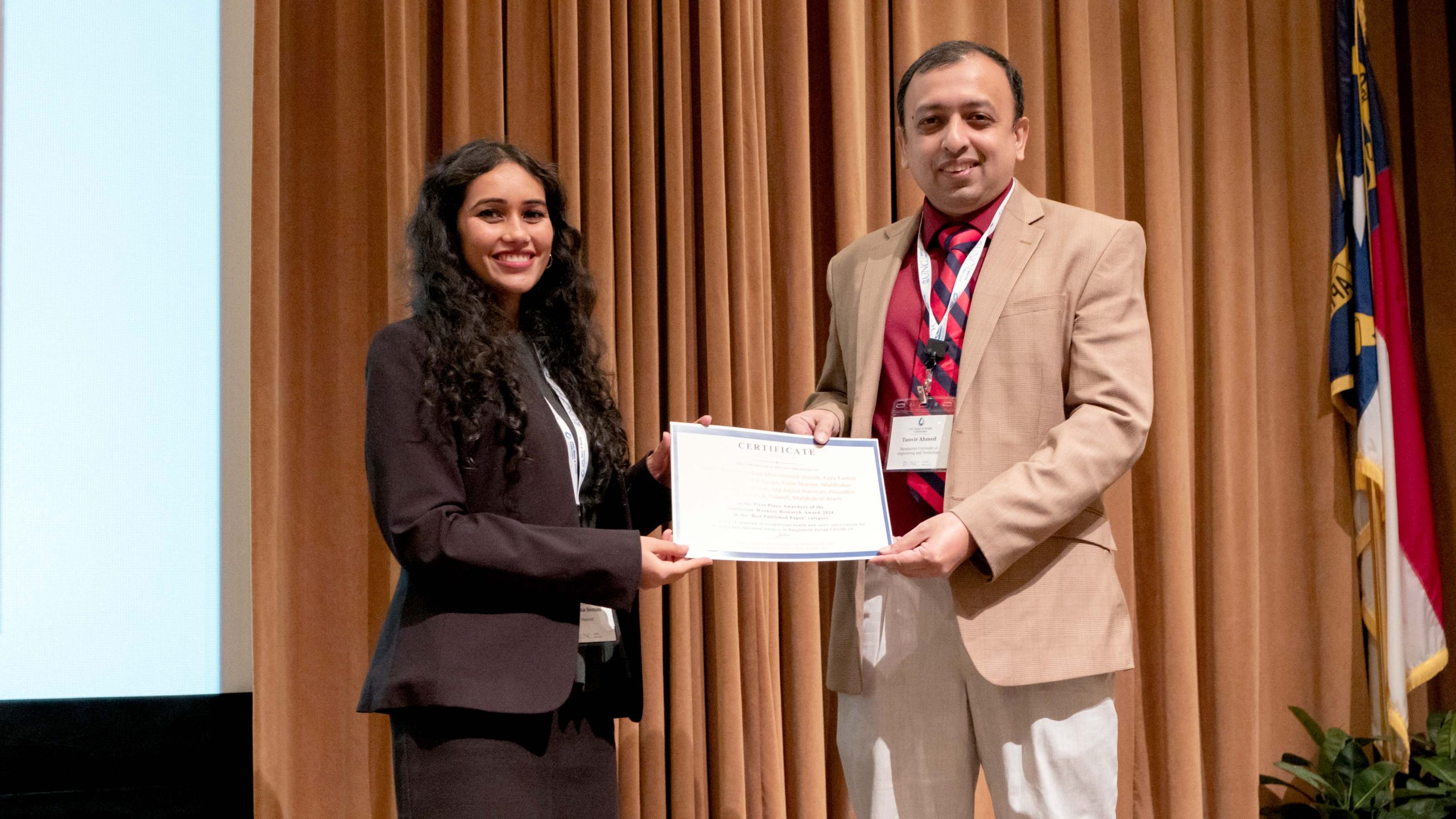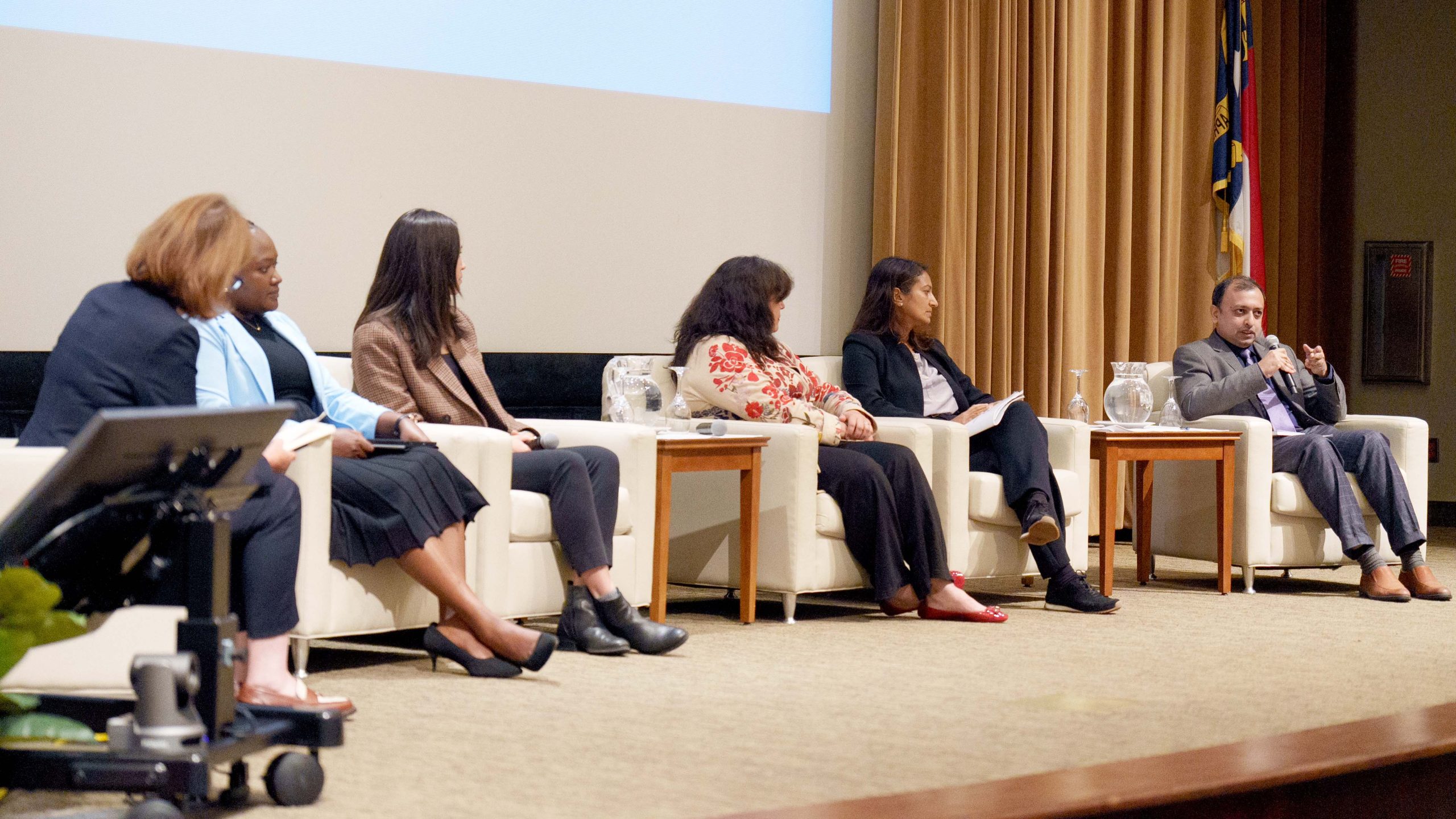The working conditions of sanitation and waste workers often put them at health and safety risks due to inadequate safety measures, including severe infections, injuries, social discrimination, and even loss of life. To address the issue, ADB and ITN-BUET developed a comprehensive training course on ‘Health, Safety, Hygiene, and Infection Prevention & Control (HSH-IPC)’ and implemented it in Nepalganj and Bharatpur municipalities of Nepal.
To ensure the mainstreaming of the health and safety measures, workshops titled ‘Stakeholders Dialogue on Safety and Dignity of Sanitation Workers’ were organized with the city authorities through a collaboration among ADB, ITN-BUET, Integrated Development Society Nepal, and Nepal Environment Journalist Group. The workshops were organized in Nepalganj and Bharatpur on the 22nd and 24th of September, respectively. 96 attendees, including local government representatives, ward chairpersons, sanitation and waste workers, employees, and relevant organizations, joined the dialogues. Stakeholders highlighted the issues and difficulties confronted by sanitation and waste workers in their line of duty.
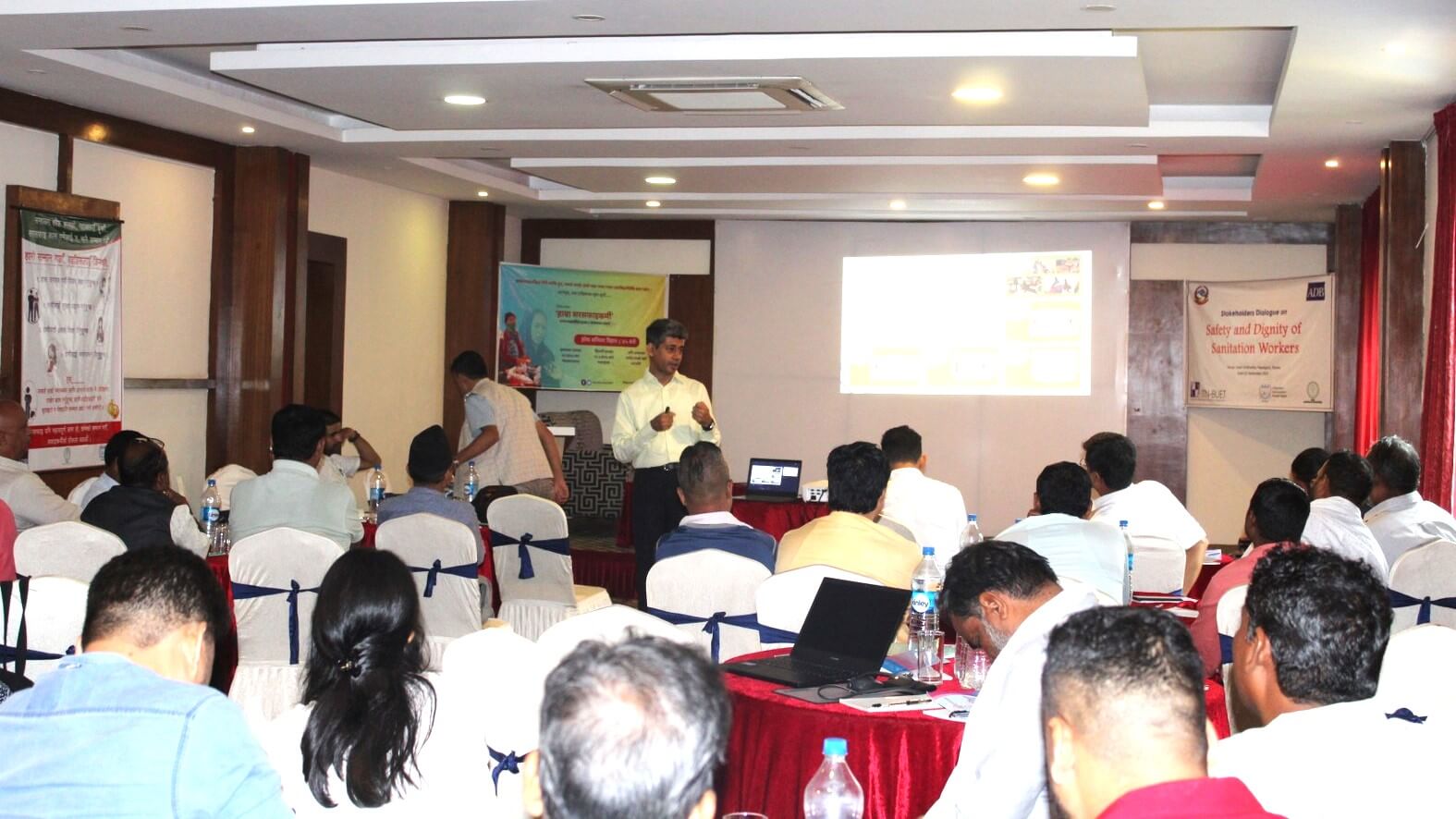

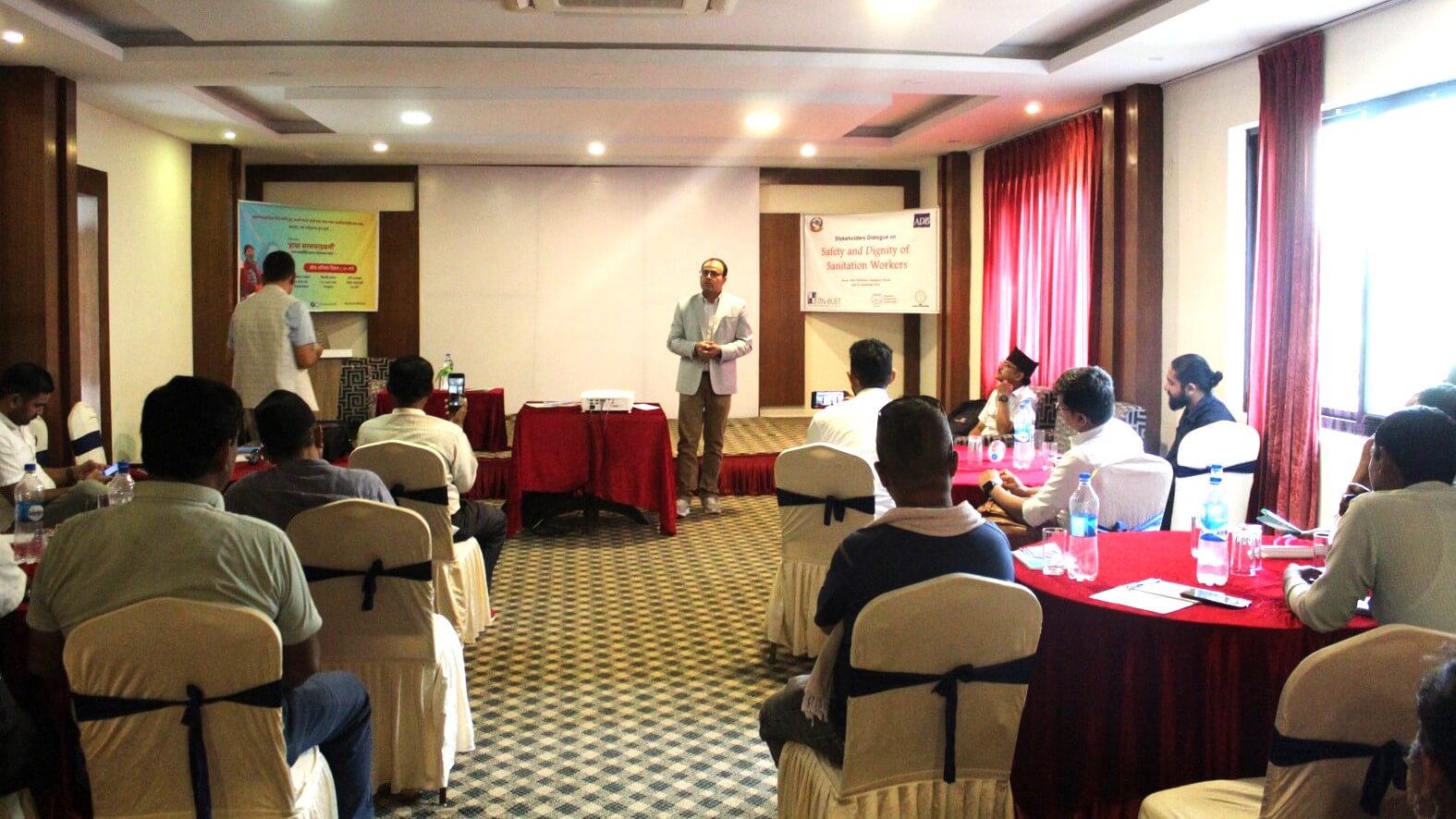
City Mayor Mr. Prasanta Bista, the chief guest of the Nepalgunj chapter, stated,
“Without government oversight on minimum wage implementation, the minimum wage of sanitation and waste workers cannot be ensured. It is also noteworthy that even government agencies have not adhered to these stipulated wages. This situation must come to an end.”
Mr. Ratna Lamichhane, the Joint Secretary of the Department of Water Supply and Sewerage Management (DWSSM) and the chief guest at the Bharatpur chapter, expressed,
“It’s unfortunate that sanitation and waste workers, who perform the crucial task of maintaining a clean city despite the inherent risks, often encounter societal discrimination.” He further suggested, “Through collaboration with the health sector, the municipality can offer sanitation and waste workers comprehensive healthcare entirely free of cost.”
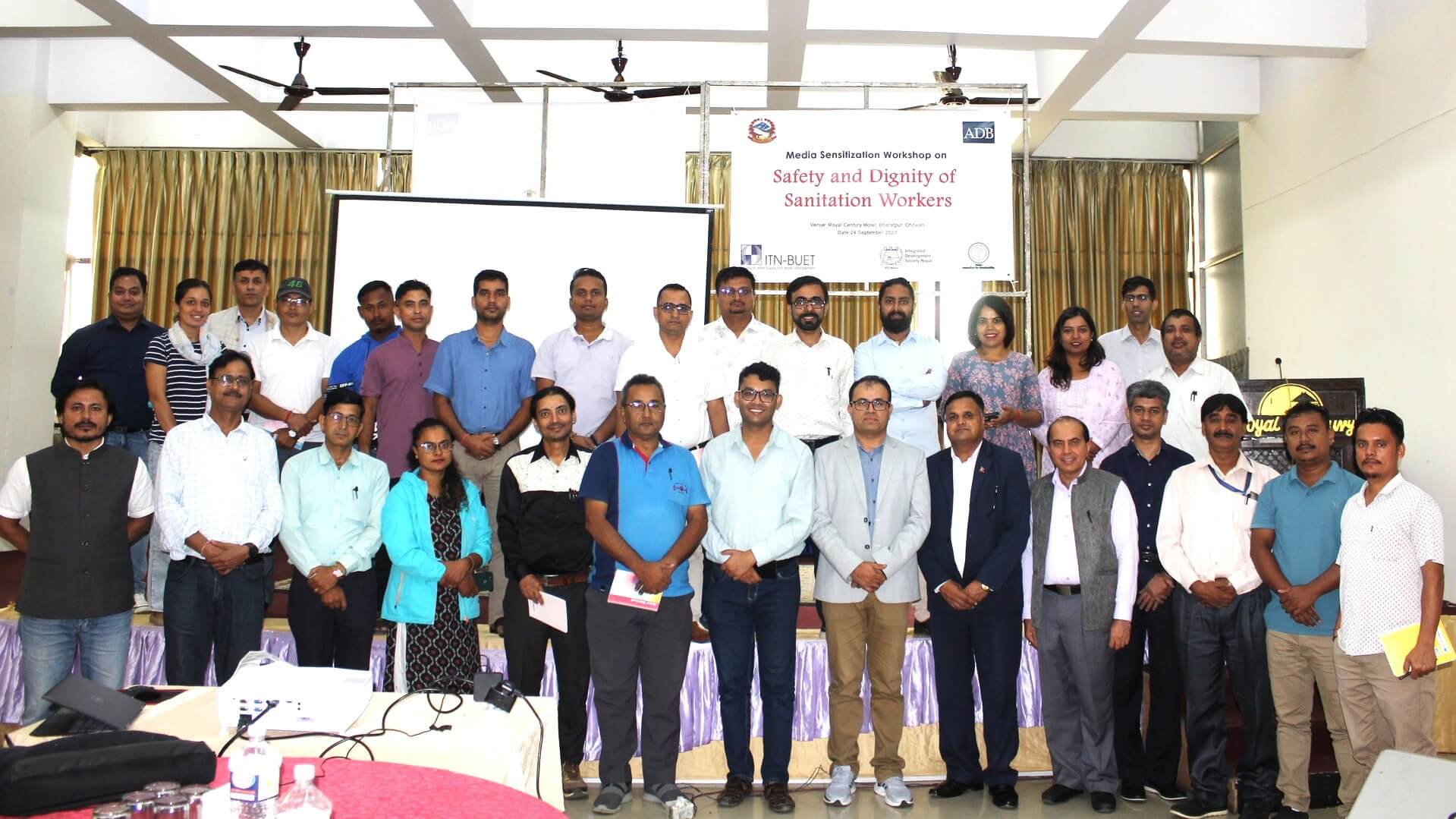
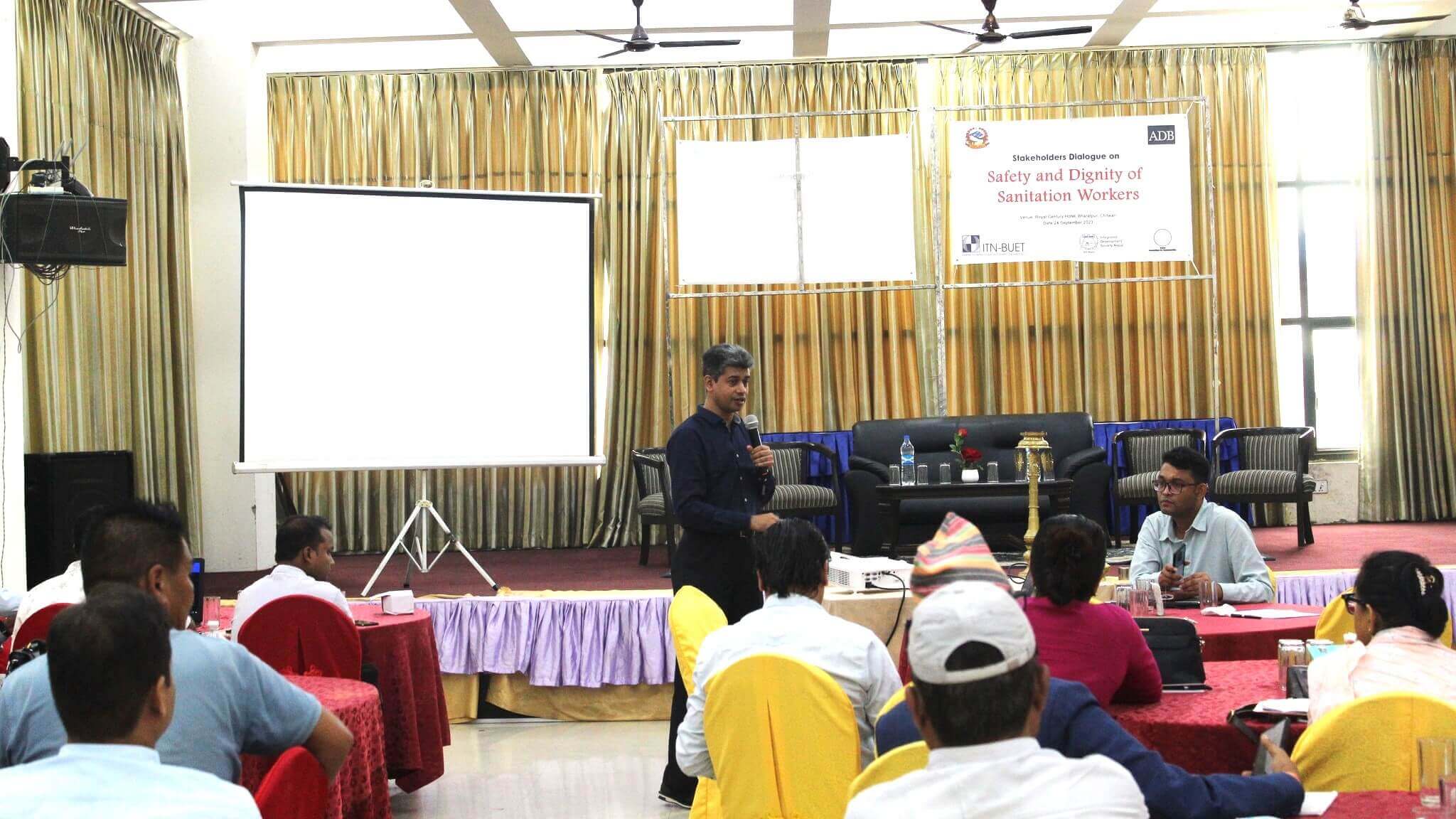
During the program, ADB introduced a model contract containing provisions aimed at safeguarding the health and safety of sanitation and waste workers. The project has also initiated an awareness campaign to promote behavioral change among the public, recognizing the necessity for a broader shift in societal attitudes and values. Mr. Alauddin Ahmed, the Project Manager of ITN-BUET, shared how the programs contribute to a positive change. He underscored the importance of each session in increasing awareness among sanitation and waste workers and policymakers to shape future policy improvements.
A gathering of distinguished guests graced the programs with their presence. Mr. Prakash Koirala, the Executive Director of IDS Nepal, attended the programs as a special guest. Among others were Mr. Om Prasad Pandey, the Chief of the Environment and Disaster Management Division of Bharatpur; Dr. Shankar Dhakal, Social Engineer of ADB; Mr. Deepak Pandey, Project Sociologist of ADB; Mr. Mohammad Imtiaz Sharif, Training Specialist of ITN-BUET; Mr. Nimesh Regmi, Team Leader of IDS Nepal/NEFEJ, also attended and facilitated the workshops.


